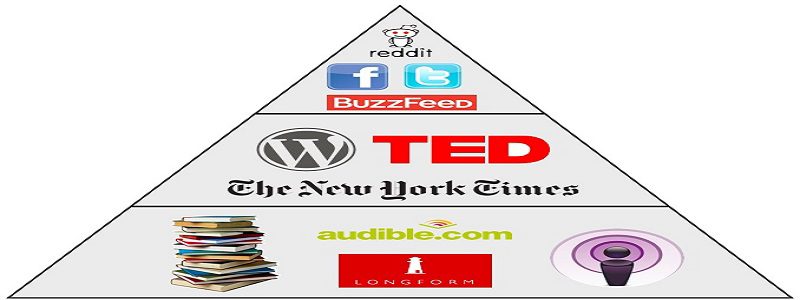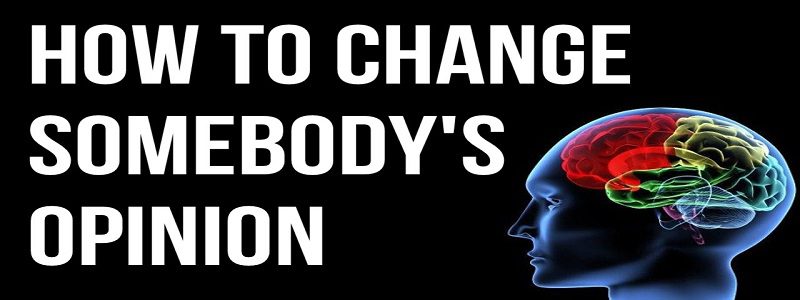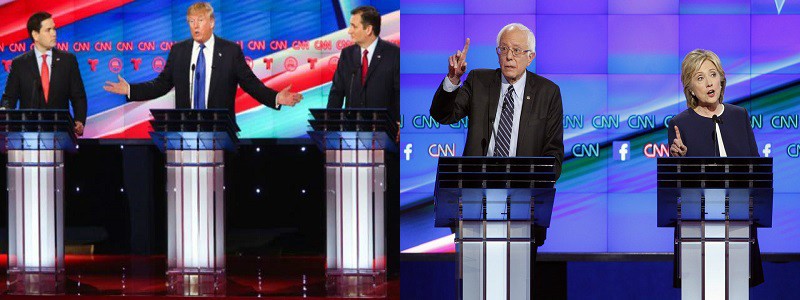Thinking Outside the Bubble: How to Properly Balance Your Media Diet
by Andrew Brokos
The 2016 US presidential election prompted a lot of concern about “bubbles” and “echo chambers,” two metaphors for a media environment in which people are exposed primarily to opinions with which they already agree and have little exposure to opposing ideas or viewpoints.
At this point, it’s practically a cliché to say that democracies are healthiest when citizens routinely challenge their beliefs by engaging with perspectives that differ from their own. More than 150 years ago, John Stuart Mill recognized that, “He who knows only his own side of the case, knows little of that. His reasons may be good, and no one may have been able to refute them. But if he is equally unable to refute the reasons on the opposite side; if he does not so much as know what they are, he has no ground for preferring either opinion. The rational position for him would be suspension of judgment, and unless he contents himself with that, he is either led by authority, or adopts, like the generality of the world, the side to which he feels most inclination.”
Beyond Changing Opinions: The Enduring Impact of Debate
Even if you make no progress in changing anyone else’s mind, you may end up changing your own. Debate is like a stone that sharpens a blade. By forcing you to defend your arguments in a rigorous way, it compels you to think more deeply about them.
Are you among the millions of Americans who, in the year or so since the 2016 presidential election, have found themselves shaking with frustration at the refusal of a friend, family member, or colleague to accept a premise that seems beyond dispute? Have you argued, over Thanksgiving dinner or on social media, until one of you stormed away huffing and red in the face? Do you despair at the seemingly hopeless task of reconciling your own beliefs with those of the other half of the country? Well, I have bad news, good news, and a bit of advice for you.
The bad news is that a logical argumentation is not a particularly effective tool for changing the mind of a person you’re arguing with. I say this as a dedicated debater and teacher of debate. Unfortunately, what we know of human psychology suggests that directly challenging a person’s beliefs can even have the opposite effect, further entrenching those beliefs and making them more resistant to change. People circle the wagons, so to speak, when they feel attacked. They close their minds, and in the process of arguing they often come to hold their original beliefs even more strongly.
Argument Pedagogy and the Boomerang Effect, Part 1
By Dr. Gordon Mitchell
Ideal models of argumentation invite us to envision a world populated by arguers who gather evidence, test the strength of the evidence, and then carefully infer warranted conclusions based on that evidence. Of course, no one is perfect, so mistakes can be expected and fallacies are bound to occur in practice. But social psychology research suggests that everyday patterns of argumentation do not just deviate from such ideal norms; they tend to invert them. This inversion occurs when arguers begin with anchored conclusions and then proceed to seek confirmatory evidence in support of those conclusions, often subconsciously ignoring or discounting contrary evidence along the way.
“It’s the Argument, Stupid, Not the Text Type”
By Gerald Graff
A quarrel has simmered for the past several years over the kind of texts to be used in language arts instruction, according to the new Common Core and other college-directed education standards, but from my point of view as an English teacher this discussion has badly missed the point. The quarrel was touched off when these standards proposed a shift of emphasis in school reading assessment from works of fictional literature to “informational” texts. As The Washington Post and many other sources have reported, ELA teachers reacted with outrage to the shift, charging that, as Sheridan Blau, a professor of education at the Teachers College Columbia University puts it, “The effect of the new standards is to drive literature out of the English classroom.”
The Sad State of Presidential Debating? Blame the Judges
By Andrew Brokos
People familiar with my background in debate always assume that election season must be an exciting time of year for me, a rare moment during which debate is front-page news. The truth is just the opposite: I consider all of the grandstanding and empty rhetoric an insult to the activity that I love, and it pains me that these travesties are shaping America’s idea of what a debate should look like.
In November, Les Lynn wrote an excellent piece about the lack of debate in the so-called presidential debates. Sadly, the events that have occurred since have done more to corroborate than to refute that argument.






